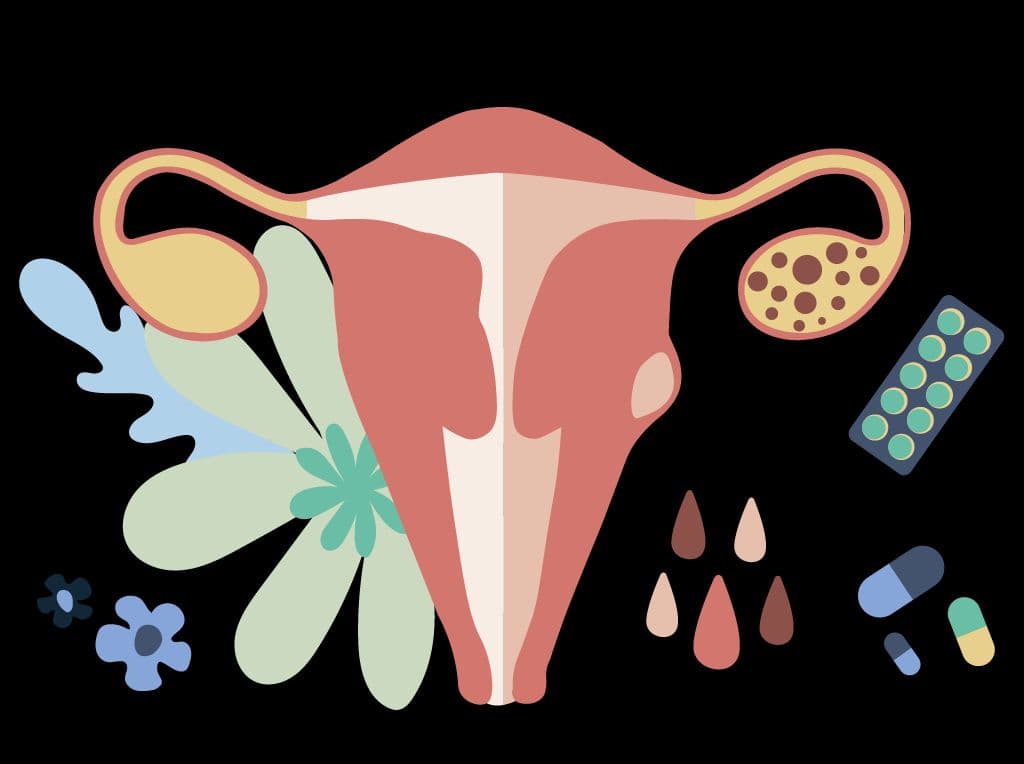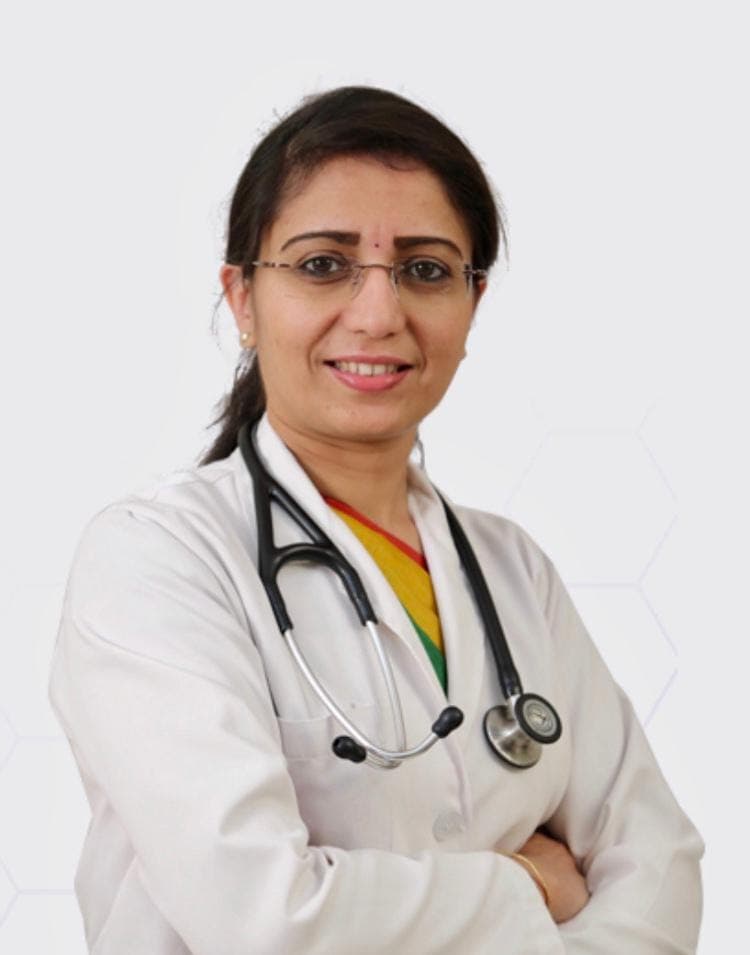This article is compiled by Sanjana Varma, a freelance writer at Proactive For Her.
What is Hirsutism? Why does it happen?
Hirsutism is the excessive growth of unwanted hair in areas that don’t have hair in menstruators. Polycystic Ovarian Syndrome(PCOS) can cause hirsutism. PCOS is an umbrella term that describes a common hormonal disorder that causes the ovaries to produce excessive amounts of androgens(masculinising hormones). The ovaries may become enlarged with many small follicles that appear like cysts (fluid-filled sacs). The exact cause of PCOS is unknown, nevertheless, insulin resistance is linked to PCOS.

Treatment for Hirsutism: What to expect?
Both hirsutism and PCOS are easier to treat when diagnosed at an early stage. PCOS can lead to hirsutism, acne, irregular or heavy menstrual periods, lack of ovulation, and infertility. It can also trigger diabetes, uterine cancer, high cholesterol, and heart disease. With timely professional help, hirsutism in pcos can be successfully treated.
If there is an underlying cause for PCOS-related hirsutism, often treating the cause will help treat hirsutism. Medical treatments and self-care routines can help you manage excessive hair growth. Talk with your doctor about drugs that treat hirsutism, if cosmetic treatments don’t work for you.
The treatment of PCOS-related hirsutism requires patience because hair follicles have a life cycle of approximately six months. Hence most medications must be taken for six months before a noticeable improvement occurs. In the meantime, the existing hair can be manually removed or bleached.
Medication options include:
- Oral contraceptives:
- Birth control pills or other hormonal contraceptives, which contain estrogen and progestin are used to treat hirsutism. This method can be opted by people who are not planning to start a family soon.
- They help reduce excessive male hormone (androgen) levels in the blood, particularly testosterone. By doing so, symptoms of acne, androgenic alopecia (male pattern baldness), and hirsutism (unwanted facial and body hair) can be alleviated. The pills also reduce the risk of endometrial cancer ( cancer of the lining of the womb).
- Nausea, bloating, weight gain, mood changes, migraines, risk of blood clot are possible side- effects of these drugs
- Your doctor will assess your eligibility and safety to have these pills and prescribe them for you. Diane 35/ Krimson 35 are commonly prescribed brands, which contain cyproterone acetate (progesterone with strong anti-androgen properties)
- Anti-androgens:
- These drugs block androgens from attaching to their receptors in your body. Anti-androgens are usually prescribed six months after oral-contraceptive treatments, especially if there was no improvement. It also takes 6 months to exhibit changes. The most commonly used anti-androgen for treating hirsutism is spironolactone (Aldactone, CaroSpir).
- This group of medications is likely to cause side effects in a growing pregnancy, hence it's important to use contraception while taking them. Side effects may include dry skin, heartburn, headaches, irregular vaginal bleeding, menstrual irregularity and fatigue.
- Finasteride:
- This is another medication that suppresses the small amount of male hormone that is present in your body. This action blocks the action of the hormone at the level of the hair follicle. Finasteride is also used to treat male-pattern baldness.
- Pregnant women should refrain from using this medication and so do people who are trying to conceive. These medications are not FDA-approved for the treatment of hirsutism in women but are used commonly and have been studied for that purpose.
- Topical creams:
- Eflornithine(Vaniqa) is a prescription cream specifically for excessive facial hair due to PCOS in women. It should be directly applied to the area twice a day. It can be used with laser therapy to enhance the response as it only slows down hair growth and does not remove them.
Procedures
Hair removal methods are more effective than self-care methods, especially when combined with medical therapy.
- Laser therapy: A beam of highly concentrated light (laser) is passed over your skin to damage hair follicles and prevent hair from growing (photoepilation). You might need multiple treatments. For people whose unwanted hair is black, brown or auburn, photoepilation is usually a better option than electrolysis. Talk to your doctor about its risks and effects before you choose it. Note that people with tanned or darkly pigmented skin are at increased risk of side effects from certain lasers, including a darkening or lightening of their usual skin tones, blistering, and inflammation.
- Electrolysis: This treatment involves inserting a tiny needle into each hair follicle. The needle emits a pulse of electric current to damage and eventually destroy the follicle. You might need multiple treatments. For people with naturally blond or white hair, electrolysis is a better option than laser therapy.
- Electrolysis is effective but can be painful. A numbing cream spread on your skin before treatment might reduce discomfort.
Preparing for your appointment
When you make your appointment, ask if you should avoid removing your unwanted hair so the doctor can better evaluate your condition. Make a list of:
- key personal information, including other medical conditions and changes in your menstrual cycle
- all medications, vitamins and other supplements you take, including doses
- questions to ask your doctor
Bottom line
Hirsutism is a common disorder that usually can be treated successfully with medication and even managed with self-care methods like plucking, shaving or waxing. Medical treatment, electrolysis or laser treatment can be used to permanently reduce or remove any remaining unwanted hair. If other female family members have experienced excessive hair growth, you should watch for early signs of hirsutism in yourself and your children, especially during adolescence.
Dealing with hirsutism and PCOS can be difficult. It may make you feel unfeminine, uncomfortable, or self-conscious about your excessive hair growth or weight and even doubt your ability to have kids in the future. Talking with a specialist can give you a perspective on your condition and explore avenues of treatments that may help you.
Disclaimer - This information is educational and should not be construed as medical advice. Please consult your doctor before making any dietary changes or adding supplements
Proactive For Her is a digital clinic for women, offering accessible, personalised, and confidential healthcare solutions. We offer out-patient care, diagnostic services and programs for various health concerns of Indian women, across their lifetime - from puberty to pregnancy to menopause. To know more on the sexual and reproductive health of women, visit https://www.proactiveforher.com/

